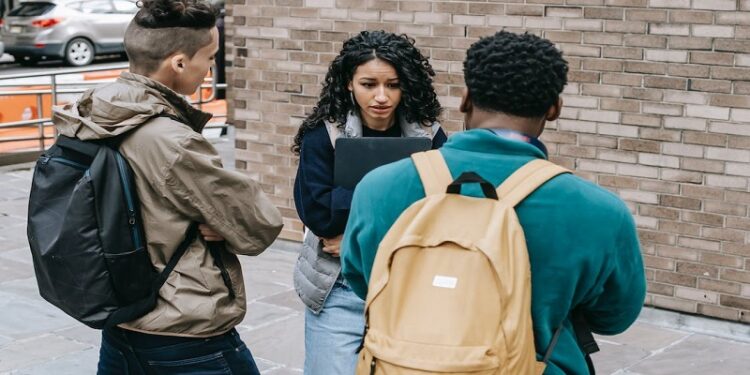By Ragheema Mclean
Although new laws to protect women and children in South Africa from abuse and violence have been introduced, the country remains one of the most unsafe places in the world for them.
The latest crime statistics showed that between July and September 2023, 6,945 people were murdered in South Africa, of which 881 were women and 293 were children.
As South Africa commemorates the 16 Days of Activism for No Violence against Women and Children, it is important to shed light on the pervasive issues women face daily.
Speaking to VOC News, several young women living in Cape Town shared some of their personal experiences with public harassment, highlighting the distressing frequency of such incidents.
Sakinah Samuels (25) recalled an incident from her childhood, where she was subjected to sexual harassment by young boys in her neighbourhood.
“I remember there was this one-time during fast (Ramadan), and there were two young boys who brought around cookies to our house and one of the boys grabbed my crotch.”
Expressing her frustration, Samuels detailed how men frequently objectify her in public spaces, emphasizing that even minimal efforts to appear presentable draw unwelcome attention.
“The thing is you don’t even have to be looking your best to be catcalled and to be looked at weird.”
“This one time, I was walking on the beach and there was this older man who looked at me from head to toe and made the comment: ‘Mmmmh’”
“Just because I look lekker, doesn’t mean I want men to look at me or comment.”
Similarly, Lerato Botha (22) disclosed feeling pressured to engage with individuals to ensure her safety, irrespective of her disinterest.
“I have experienced some uncomfortable situations where I felt forced to go with the flow because I feared what would happen to my life.”
“I felt often forced to entertain things with men just so I could leave the situation safely, even when I wasn’t interested in that particular individual, I felt a necessity to be polite or to smile just so that I could get away.”
Botha stressed that harassment ranges from subtle coercion to extreme situations, even with those she found attractive.
“I have been in situations where I might not have been ready to engage physically but because I found them attractive and wanted them to like me, I allowed myself to be coerced into doing something I was not prepared for.”
“Its important to note that sexual harassment can be both extreme and subtle.”
Meanwhile, Gabriella Siebritz a 22-year-old student recalled her encounters with harassment on public transport and expressed how she wishes she would’ve done things differently.
Siebritz explained how one two separate occasions, men have tried to kiss her on her commute to university.
“On public transport I generally keep to myself, I always have my headphones, or I’d be reading a book, but it’s happened on two occasions where men have felt entitled to my space.”
“In both stances, these two men tried to kiss me, which I did not ask for nor consent too it was very awkward and uncomfortable – I was so scared!”
She further noted how she sought help from bystanders – yet found no one willing to help or intervene.
“People just laughed and didn’t take it seriously.”
Furthermore, VOC News also spoke to a male to discuss the role of men in ending gender-based violence.
Ryan Cloete (24) said he has witnessed on multiple occasions where girls have been catcalled or whistled at by men.
“Sometimes guys would even blow kisses and make ugly comments on their body.”
“A lot of the time, I often ignore these scenarios because I do not want to get involved but I do recognize that that is wrong and helping should be my first reaction.”
Cloete further emphasised the importance of addressing any conversation or interaction you witness where a woman appears to be in distress.
“Often, we are reluctant to help because we don’t know the dynamics between two people, so I feel like when you are unsure rather ask, other than just turning a blind eye.”
“There’s always the chance where help is needed, and you could potentially help someone in need.”
Photo: Pexels






 WhatsApp us
WhatsApp us 

